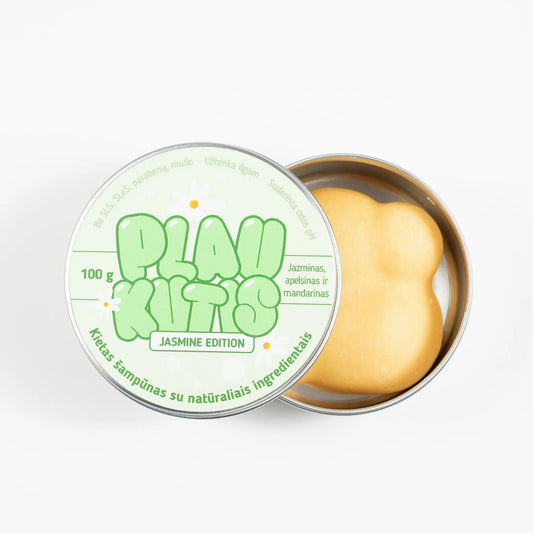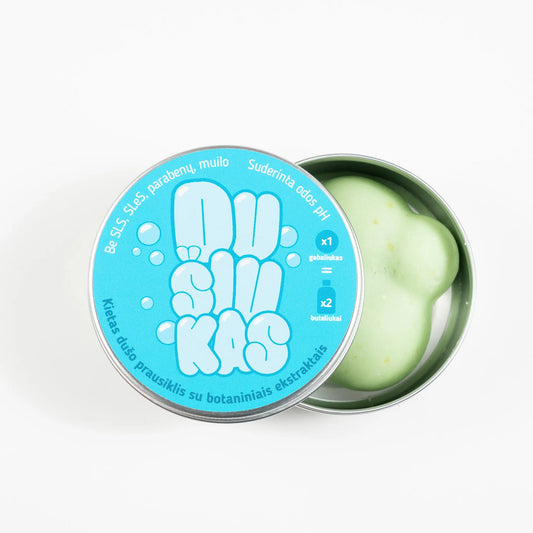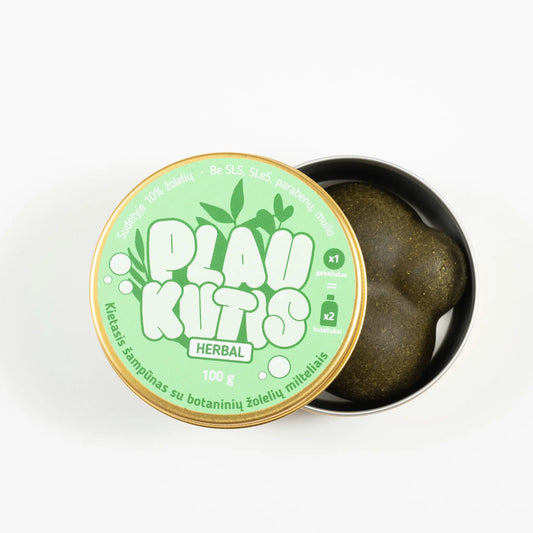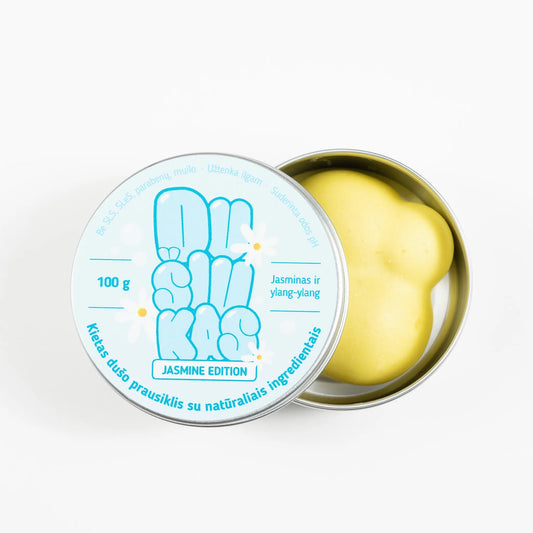In recent years, consumers have increasingly turned to natural hair care products as a gentler and more environmentally friendly alternative to synthetic shampoos. A report by Grand View Research revealed that the global organic personal care market, which includes natural hair care products, will reach $25.1 billion by 2025 , growing at a compound annual growth rate of 9.5% . This growth reflects increasing consumer awareness of harmful chemicals and their impact on the environment.

Natural cleansers like soap nuts, clays, and oils are becoming increasingly popular due to their gentle yet effective properties. These organic alternatives offer a way to cleanse your hair without stripping it of essential oils or damaging your scalp. In this article, we’ll explore how these natural cleansers work, their benefits, and potential drawbacks. Whether you’re looking to detoxify your scalp or maintain moisture balance, these natural options offer a sustainable solution.
Soapnuts: Nature's Hair Cleanser
Soap nuts, also known as soapberries, grow on Sapindus trees, which are native to tropical regions. They have been used in Ayurvedic medicine for thousands of years for their cleansing properties. Soap nuts contain 12-15% saponins , natural compounds that interact with water to create a gentle lather that helps cleanse hair without the use of synthetic detergents.
How soap nuts work
When soap nuts are soaked in warm water, they release saponins, which act as a natural surfactant to gently remove dirt, oil, and grime from the scalp and hair. Unlike sulfates, which can strip natural oils and irritate the skin, soap nuts maintain the hair’s moisture barrier. A 2018 study published in the Journal of Natural Products found that soap nuts have natural antibacterial and antifungal properties that may help reduce scalp infections and prevent dandruff.

Benefits of using soap nuts for hair
- Gentle and non-toxic : Soapnuts are hypoallergenic and safe for sensitive scalps. A 2019 study found that individuals who used soapnut shampoos experienced 30% fewer irritation symptoms than those who used sulfate-based shampoos.
- Eco-friendly : Soap nuts are biodegradable and free of harmful chemicals, making them a sustainable choice for environmentally conscious consumers. A study by the EcoWaste Coalition found that soap nuts reduce water pollution by 20-30% compared to conventional shampoos.
- Economical : One batch of soap nuts can be used several times before it loses its effectiveness. In some cases, a 500 gram package of soap nuts can last up to 6 months of hair washing.
Possible disadvantages of soap nuts
While soap nuts have many benefits, they may not be for everyone. Some users report that soap nuts do not provide as much lather as regular shampoos, which can take some getting used to. Additionally, soap nuts may not be as effective at removing heavy product residue or oils from very oily hair, which may require more frequent washing or additional products.
Clay: detoxification and cleansing
Clays like bentonite and rasul clay have been used for centuries for their cleansing and detoxifying properties. They’re rich in minerals like silica, calcium, and magnesium, which help cleanse the scalp by absorbing impurities and oil. A 2020 study published in the International Journal of Dermatology found that clay-based cleansers can reduce scalp oil production by 35% after four weeks of use, making them ideal for oily hair.
Types of clay used for hair care
- Bentonite Clay : Derived from volcanic ash, bentonite clay is known for its ability to bind toxins and heavy metals, removing them from the scalp. It is highly absorbent and provides a deep cleanse.
- Rasoul Clay : This mineral-rich clay is mined in the Atlas Mountains of Morocco and is known for its hydrating properties. It is less absorbent than bentonite, but still effectively removes impurities and oil while softening the hair.

How clays detoxify and cleanse the scalp
Clay works by binding to impurities and removing them from the scalp and hair, leaving a detoxified environment. For example, bentonite has a negative electrical charge that attracts positively charged toxins, heavy metals, and oils. This process results in cleaner hair and a healthier scalp. A 2019 study found that people who used bentonite clay experienced 25% less dandruff and improved scalp health after just one month.
Disadvantages of clay-based cleansers
While clay-based cleansers are great for detoxifying, they can be overly drying for certain hair types, especially dry or curly hair. Because clay is so effective at absorbing oil, it can also strip essential moisture from the scalp and hair. Therefore, users may need to balance their clay use with hydrating masks or oils to prevent excessive dryness.
Oils and natural extracts as cleansers
Using oil to cleanse may seem counterintuitive, but certain oils, like castor, olive, and coconut, have long been used as natural hair cleansers. These oils help dissolve grease and impurities, providing a hydrating cleanse while preserving your hair's natural oils.

How oil cleansing works for hair
Oils work by breaking down other oils and dirt on the scalp, making them easy to rinse away. This method is especially beneficial for those with dry or brittle hair, as oil cleansing does not strip the hair of its natural oils. A 2020 study published in Dermatologic Therapy found that people who used castor oil to cleanse their hair experienced a 15% improvement in hair strength and a 20% reduction in hair breakage after 12 weeks.
- Castor Oil : Rich in ricinoleic acid, castor oil helps promote hair growth and reduces scalp inflammation. Its thick consistency makes it ideal for deep cleansing and moisturizing.
- Olive Oil : Olive oil is rich in antioxidants and vitamins A and E, which help nourish the scalp and hair follicles. It is a great choice for maintaining moisture balance.
- Coconut Oil : This lightweight oil penetrates the hair shaft, providing deep hydration and protection against protein loss. Coconut oil is especially good for restoring shine and softness to damaged hair.

Benefits of oil cleansing for hair
- Moisture retention : Oils help lock in moisture, making them great for dry or frizzy hair. A 2019 study published in Hair Science found that individuals who used coconut oil experienced 25% less hair protein loss , making their hair more resilient and less prone to breakage.
- Scalp health : Oils like castor and coconut have antibacterial properties that support a healthy scalp, reducing dandruff and irritation.
- Eco-friendly : Because oils are biodegradable and require fewer chemical processing materials, they are a more sustainable alternative to many synthetic shampoos.
Possible disadvantages of oil cleaning
While oil cleansing is beneficial for many hair types, it may not be right for everyone. People with naturally oily hair may find that oil cleansing leaves their hair feeling heavier or greasier. Additionally, the oil can be harder to completely rinse out, so thorough rinsing may be necessary to avoid residue.

Myth busting or interesting facts
- Myth: “Natural cleansers are not as effective as synthetic shampoos.”
Fact: Studies have shown that natural cleansers like soap nuts and clay can be just as effective at removing impurities as synthetic shampoos. A 2020 study found that bentonite clay reduced scalp oil production by 35% , making it a great natural option for oily hair. - Fun fact: Soapnuts have been used in Ayurvedic medicine for over 3,000 years for their natural cleansing and antibacterial properties.
- Myth: “Clay is too aggressive for frequent use.”
Fact: When used properly, clays like rasul and bentonite gently cleanse and detoxify the scalp without causing damage. Rasul clay increases hair moisture levels by 20% after just one use. - Fun fact: Castor oil not only cleanses the scalp, but it also promotes hair growth. A study showed that participants who used castor oil experienced a 15% increase in hair density after six months.
- Myth: “Oil-cleansing makes hair greasy.”
Fact: When used in moderation, olive oil balances the scalp's natural oil production. A 2018 study found that those who used olive oil reported 25% less frizz and 20% more shine after two months of use.
Practical tips or solutions
- Frequency is important : Use clay or oil cleansers once a week if you have dry or curly hair to prevent excessive dryness. For oily hair, using clay more often will help regulate sebum production.
- Mix and match : You can alternate between soap nuts, clay, and oil cleansing. For example, use clay to detoxify, followed by oil to lock in moisture to keep your scalp healthy.
- Homemade cleansers : You can easily make natural cleansers at home. Boil soap nuts in water, strain, and use the liquid as shampoo. For clay-based cleansers, mix bentonite clay with apple cider vinegar and use as a detoxifying scalp mask.
- Rinse thoroughly : Make sure you rinse clay and oil cleansers well to avoid residue that can weigh down your hair or make it feel greasy.
- Moisturize after cleansing : Use a hydrating conditioner or hair mask after your clay-based cleanser to restore moisture balance.
Frequently asked questions
Q: Can I use soap nuts if my hair is dyed?
A: Yes, soap nuts are gentle enough for color-treated hair and do not strip color like some synthetic shampoos.
Q: How often should I use a clay-based cleanser?
A: It is best to use clay cleansers once or twice a week, depending on your hair type. Oily hair may benefit more from more frequent use, while dry hair should be used less frequently to avoid excessive dryness.
Q: Does oil cleansing make hair oily?
A: If used in the right amount, oil cleansing should not make your hair greasy. Start with a small amount and adjust as needed based on your hair type.
Q: Are natural detergents more environmentally friendly?
A: Yes, most natural cleansers, including soap nuts, clays, and oils, are biodegradable and do not contribute to water pollution, unlike many synthetic shampoos.
Q: Can I mix natural cleansers?
A: Sure. You can use the clay to detoxify and then the oil to moisturize your scalp and hair.

Conclusion: Why it's worth trying natural cleansers
Natural cleansers like soap nuts, clays, and oils offer many benefits for both your hair and the environment. While they may take some getting used to, especially for those used to synthetic shampoos, these natural alternatives cleanse effectively without stripping your hair of its natural oils. Whether you want to detox your scalp or moisturize your hair, these natural options offer a sustainable and healthy solution to your hair care routine.













